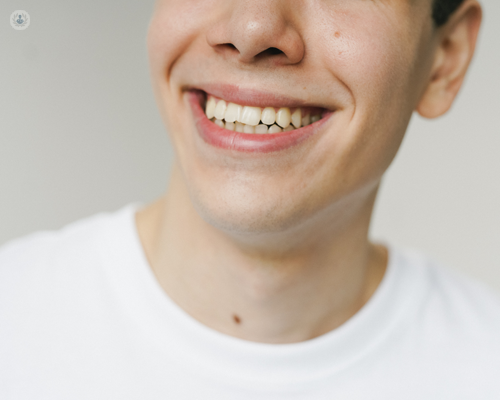How serious is salivary gland surgery?
Autore:Salivary gland surgery, though commonly performed, is a significant procedure due to the complexity of the anatomy in and around the salivary glands. It involves removing part or all of one of the three major salivary glands (parotid, submandibular, or sublingual) or smaller minor glands.
The seriousness of this surgery depends on several factors, including the type of condition being treated, the gland involved and the potential risks. Professor Stuart Winter, leading ENT surgeon, tells us all about it in this article.

Why is salivary gland surgery needed?
Salivary gland surgery is typically recommended for various conditions, such as:
- Tumours: Most are benign, but some can be malignant.
- Chronic infections: Recurrent infections that don’t respond to other treatments.
- Salivary stones: Blockages that obstruct saliva flow, causing swelling and pain.
- Other conditions: Autoimmune diseases like Sjögren’s syndrome or cysts that affect salivary function.
Is it a complex procedure?
The complexity of salivary gland surgery largely depends on the gland involved. For example:
- Parotid gland surgery: This is often more complex due to the proximity of the facial nerve, which controls facial movement. Surgeons must be careful to avoid damaging this nerve to prevent complications like facial paralysis.
- Submandibular or sublingual gland surgery: These surgeries are typically less risky but still require precision, as the area contains vital nerves and blood vessels.
What are the potential risks and complications?
While salivary gland surgery is generally safe, it does carry certain risks. These include:
- Nerve damage: Damage to facial nerves can lead to temporary or permanent facial weakness or drooping, especially in parotid gland surgery.
- Infection: As with any surgery, there’s a risk of infection at the incision site.
- Bleeding: Excessive bleeding during or after surgery can occur, though it’s relatively rare.
- Scarring: Visible scarring may be a concern, especially for surgeries near the face or neck.
- Dry mouth: Removal of a major gland can reduce saliva production, leading to dry mouth.
Recovery and aftercare
Recovery from salivary gland surgery depends on the complexity of the procedure. Within a few weeks, most patients can return to normal activities, but full recovery may take longer. Post-operative care may include:
- Pain management: Medications to relieve discomfort.
- Wound care: Keeping the incision site clean and monitoring for signs of infection.
- Facial exercises: In some cases, exercises may help improve facial movement if nerves were affected.
In summary, salivary gland surgery is a significant procedure, especially when the facial nerve is involved. However, with modern techniques and an experienced surgeon, it’s generally safe, and the risks are manageable. Always consult your healthcare provider to fully understand the risks and benefits in your specific case.
Do you require salivary gland surgery? Arrange a consultation with Professor Winter via his Top Doctors profile.


